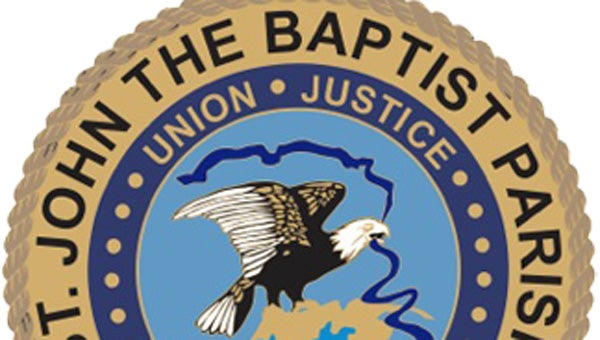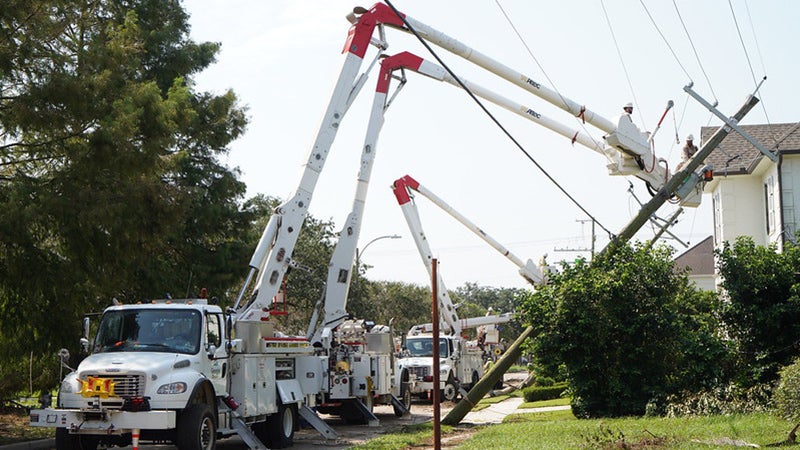St. John D.A., parish president at odds on Coastal Management Plan
Published 12:10 am Saturday, February 4, 2017
LAPLACE — A developing chasm between St. John the Baptist President Natalie Robottom and District Attorney Bridget Dinvaut might be resolved during the parish council meeting on Tuesday.
Council members are scheduled to take up a second discussion on an ordinance that was abruptly tabled during the Jan. 24 meeting regarding the adoption of the Parish’s proposed Coastal Management Plan. Just as Council members began what started out as a seemingly benign discussion, Dinvaut requested the ordinance be tabled, which immediately halted the discussion, even though Robottom petitioned to make a comment. At that point, Council Chairman Larry Snyder said a motion was on the floor and that it needed to be voted on.
Without further discussion, the Council tabled the ordinance.
“We were extremely surprised by the D.A.’s recommendation as no concerns were expressed to me or my staff prior to the meeting,” Robottom said via email this past week.
“Council members also seemed surprised but followed the advice of legal counsel with little opportunity to obtain additional information.
“I had conversations with several Council members who indicated they are familiar with the plan and were prepared to approve it before the D.A.’s recommendation.”
The issue appears to hinge on potential lawsuits against the oil industry for damages for their role in damaging the state’s coastal wetlands, which the parish may initiate or be a participant. Several parishes have already filed suits, and Gov. John Bel Edwards is urging others to follow, which has drawn the ire of Attorney General Jeff Landry.
During the Jan. 24 meeting, Dinvaut told Council members “we have been working with an attorney recommended to us by Gov. Edwards’ office on this potential and historic litigation. It is extremely complex.”
Robottom said she was also surprised the D.A.’s office had been meeting with an attorney “with no input from the parish or administrative staff assigned to the project with coastal experience.”
Robottom said that adoption of the plan would allow St. John Parish to play a more active role in decisions that shape local coastal management policy. She said creation of a management program qualifies the parish to receive state and federal funding for coastal restoration and protection projects.
She said some of those funding sources, and she listed seven, require the local parish to have a plan in place.
“Coastal restoration funds, as determined by their source, can be used for projects such as freshwater diversions (which restore wetland health), shoreline protection projects (for example on Lake Pontchartrain or Lac Des Allemands), and operation and maintenance of levee systems,” Robottom said.
Adding to the complexity of the issue, however, is according to the district attorney, a plan adopted by the Parish would negate the work already put in by her office.
Additionally she told Council members that since a plan has yet to be adopted, the parish is in a “very, very advantageous posture in order to file suit.”
She said adoption of the plan, which was originally presented to the Council in the summer of 2016, would effectively remove the D.A.’s office from the litigation and monitoring the lawsuit would fall to the administration.
“We feel it is extremely important for the best interests of the citizens of St. John the Baptist Parish that lawyers be sitting at the table with other lawyers,” Dinvaut said. “We want to make sure to monitor what the damages are.
“I don’t want (the parish) to pass (the plan) and be lumped in with all of the other parishes that have these plans and end up with the lawyers making all of the money and the (parish) getting a nominal amount.”
Robottom negated the D.A.’s claim, saying the adoption of a management plan would not inhibit the parish’s ability to take part in future coastal legal action. She said it is “not factually correct” and added several parishes with approved plans are already participating in lawsuits.
Robottom said she and Dinvaut have not spoken since the Jan. 24 meeting nor has she spoken with anyone in the D.A.’s office.
She said if the Council shoots down the plan, the state will continue to manage the Parish’s coastal use permitting process and St. John would have a smaller voice in issues that impact the parish. Robottom also believes a negative vote would mean the parish could potentially miss out on coastal restoration funding opportunities.
Dinvaut said her office is continuing to negotiate with an attorney and is “hoping to come back to (the council) with an update.”
The Coastal Management Plan allows local authorities to accept and enforce the Coast Use Permit applications relevant to a particular parish.
According to Robottom, the parish council initially approved an ordinance creating a Coastal Zone Management Committee in 1982 but no members were ever appointed. A new ordinance adopted in 2014 replaced the previous ordinance and committee appointments were made in the spring of 2015.
The committee, along with the administration drafted the plan, which was digitally distributed to the council in July. According to Robottom, a copy of the plan, which has been approved by the Department of Natural Resources, was delivered to Dinvaut’s office in 2016.
The CZA committee approved the draft on Jan. 4.
— By Richard Meek






